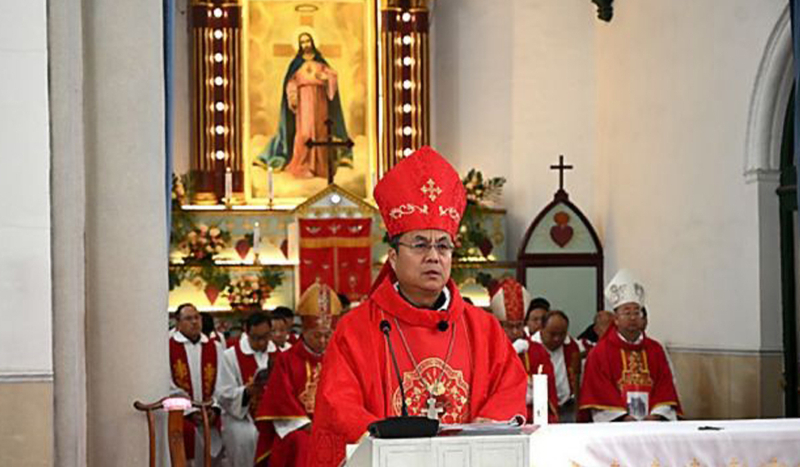
johnconverseofficial / Threads
CV NEWS FEED // A religious freedom watchdog raised concerns Feb. 5 over the latest bishop appointment in China, drawing attention to the unusual process that appears to sideline the Vatican’s role in episcopal appointments under the 2018 Vatican-China deal.
The Vatican-China Provisional Agreement, controversially renewed in 2024, enables collaboration between the Chinese Communist Party (CCP) and the Vatican in the appointment of new bishops.
The case of Bishop Anthony Ji Weizhong, who was recently appointed as bishop of the Diocese of Lüliang and ordained to the episcopate Jan. 20, has drawn scrutiny from the religious liberty watchdog magazine Bitter Winter, due to apparent inconsistencies in the approval process.
On July 19, 2024, the CCP announced then-Father Weizhong’s election as bishop of Lüliang, despite the fact that Lüliang was not an officially recognized diocese by the Vatican at the time. Instead, it was part of the Diocese of Fenyang.
On Jan. 20, 2025, the Vatican’s official bulletin announced that Pope Francis had, on Oct. 28, 2024, suppressed the Diocese of Fenyang, established the Diocese of Lüliang, and formally appointed Fr. Weizhong as its bishop.
“It was a desire of the CCP that such a diocese was created as part of the CCP’s plan to reduce the number of Catholic Chinese dioceses and adapt them to China’s administrative divisions,” according to Bitter Winter.
It also raised questions about why the Vatican’s confirmation of the changes came months after the CCP’s seemingly unilateral decision.
In its analysis, Bitter Winter pointed to the same pattern seen in previous cases, including the appointment of the bishop of Shanghai. In these instances, the CCP first announced a bishop’s election, the Vatican remained silent for an extended period, and later the Pope appointed the same bishop the CCP had already named.
Bitter Winter raised concerns about the delay in the Vatican’s press release regarding the Pope’s approval of the CCP’s decisions on the dioceses and bishop, which came several months after those decisions were made. The publication suggested that this timing was crucial to “legitimize” the public consecration of Bishop Weizhong.
The publication also noted that at Bishop Weizhong’s consecration ceremony, no mention of papal approval was made, and instead, a letter from the state-sanctioned Chinese Bishops’ Conference — an entity not recognized by Rome — was read as the primary source of legitimacy.
Bitter Winter concluded, “The Vatican-China deal of 2018 on the appointment of bishops continues to function in a rather curious way.”
>> Catholic analyst evaluates Beijing-Vatican roles in appointing bishops to China <<

